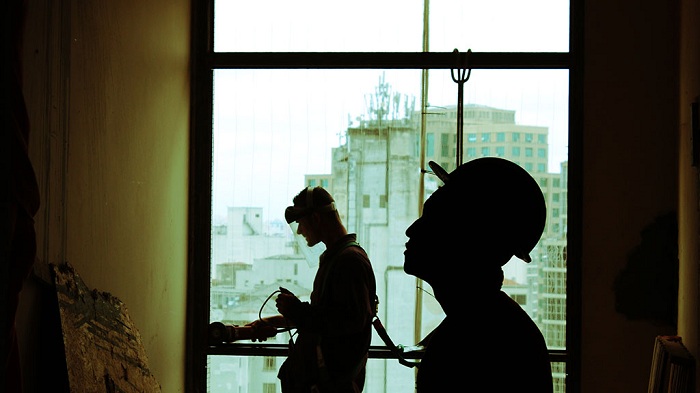Mental stress continues to rise among workers in Canada’s construction industry due to COVID-19, according to latest figures in a report by Morneau Shepell.
Individuals working in construction had a higher mental stress rate in October than they did the previous month. The Residential Construction Council of Ontario (RESCON), an association that represents builders across the province, is taking aim at the problem and recently held an Addressing Mental Health in Construction symposium to bring experts together to shed light on the issue, share resources, and help industry professionals better understand ways to address chronic stress in workplaces.
A prevailing message was that COVID-19 has taken a toll on the mental health of workers and the industry must continue taking steps to ensure that workplace safety strategies remain front and centre.
The virtual event was the second symposium that RESCON has held on the issue.
Richard Lyall, president of RESCON, kicked off the session, explaining that the organization is focused on raising awareness about mental health and addictions and removing the associated stigma.
“COVID-19 has certainly exacerbated many mental health and addiction challenges that people face daily,” he told the symposium. “It’s imperative that the entire construction industry continue to prioritize mental health and addictions and incorporate it into our health and safety strategies.”
While there’s still a lot of work to be done on the issue, including changing the culture on construction sites, he said it’s incumbent on employers to make workers feel safe and comfortable to talk about mental health. He applauded the work that the provincial government has been doing to create a connected system of care with comprehensive services so that every Ontarian can be fully supported.
“Since COVID-19 began, the government has improved and increased accessibility and availability of mental health and addictions supports – virtual and in-person – for all Ontarians, including construction workers.”
Michael Tibollo, associate minister of mental health and addictions, told the symposium that since the start of COVID-19 the provincial government has concentrated on providing a comprehensive suite of options to help people get through the pandemic and connect individuals with treatment.
The COVID-19 outbreak is “unprecedented” and “these are truly extraordinary times,” he said, noting that in the last year the province has announced more than $350 million in ongoing annualized funding towards building a comprehensive mental health and addictions system in Ontario.
Ron Kelusky, chief prevention officer at the Ministry of Labour, Training and Skills Development, reported that work-related stress, depression and anxiety have overtaken musculoskeletal disorders as the most reported workplace health issue in the construction industry these days.
However, he said the image and persona that continues to surround construction work and the fear of being stigmatized can make individuals in the industry reluctant to speak out about mental health issues.
“We want to ensure that persons working in construction have access to resources that are available, both anonymous and other.”
Cal Beyer, vice-president of workforce risk and worker wellbeing at CSDZ in Minneapolis, Minn., said suicide rates in the U.S. construction industry are three-and-a-half times greater than the national average.
Ironworkers have the highest rate, followed in order by millwrights, brick/block masons, roofers, labourers, carpenters, equipment operators, construction managers, electricians and first-line supervisors.
A number of factors make construction riskier for mental health issues, Beyer said, including, among other things, the fact that the job can cause chronic pain, the pressure of commuting or working out of town, and the perception that workers in the industry are big, stoic, tough guys or gals.
Chad Pearson, director of business development at Plexxis Software Inc., provided an overview of how the brain reacts to stressful situations and offered tips on how to help workers overcome struggles.
An individual can’t control the world, he noted, but they can prepare in advance to deal with the issues.
Amina Dibe, policy and programs analyst at RESCON, emceed the event. She stressed the importance of removing the stigma around mental health and bringing about meaningful changes.
“RESCON will continue to advocate on behalf of the residential construction industry on mental health and addictions and will push for greater access to stats and research,” she said.




































